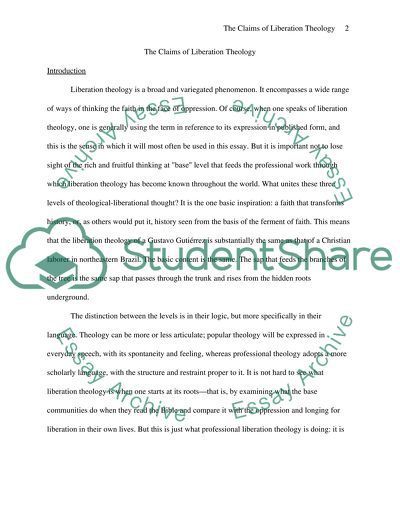Cite this document
(“The Claims of Liberation Theology Essay Example | Topics and Well Written Essays - 2000 words”, n.d.)
Retrieved from https://studentshare.org/religion-and-theology/1533548-the-claims-of-liberation-theology
Retrieved from https://studentshare.org/religion-and-theology/1533548-the-claims-of-liberation-theology
(The Claims of Liberation Theology Essay Example | Topics and Well Written Essays - 2000 Words)
https://studentshare.org/religion-and-theology/1533548-the-claims-of-liberation-theology.
https://studentshare.org/religion-and-theology/1533548-the-claims-of-liberation-theology.
“The Claims of Liberation Theology Essay Example | Topics and Well Written Essays - 2000 Words”, n.d. https://studentshare.org/religion-and-theology/1533548-the-claims-of-liberation-theology.


